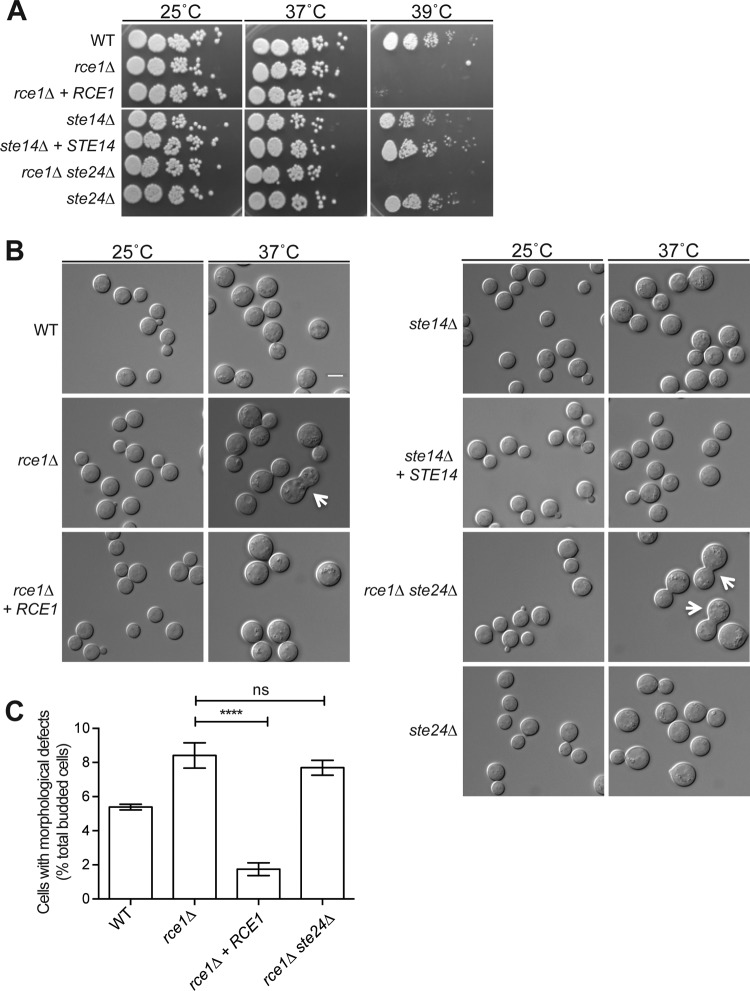FIG 3 .
Phenotypic analysis of the postprenylation processing mutant strains. (A) The rce1Δ protease mutant is temperature sensitive. The wild-type (H99), rce1Δ (LKA1), rce1Δ + RCE1 reconstituted (SKE30), ste14Δ (YSB1187), ste14Δ + STE14 reconstituted (YSB1597), ste24Δ (LKA14), and rce1Δ ste24Δ double mutant (LKA18) strains were serially diluted, spotted onto YPD medium, and incubated at 25°C, 37°C, and 39°C for 48 h. (B and C) The rce1Δ protease mutant strain exhibits a temperature-dependent cytokinesis defect. (B) The wild-type (H99), rce1Δ (LKA1), rce1Δ + RCE1 reconstituted (SKE30), ste14Δ (YSB1187), ste14Δ + STE14 reconstituted (YSB1597), ste24Δ (LKA14), and rce1Δ ste24Δ double mutant (LKA18) strains were incubated in YPD liquid medium and shifted to either 25°C or 37°C for 24 h. Cells were imaged with DIC optics to assess temperature-dependent alterations in morphology. Arrows denote wide bud necks indicating the partial cytokinesis defects of the rce1Δ and rce1Δ ste24Δ mutant strains. Bar, 5 µm. (C) Quantification of morphological defects after 24 h of incubation at 37°C. Data represent the percentages (as means ± standard errors) of budded cells with morphological defects (wide bud necks, elongated/unseparated cells, and/or chains of cells). At least 600 cells over 3 biological replicates of each strain were counted using ImageJ software (Fiji) (60). Statistical significance was determined by one-way ANOVA and Tukey’s multiple comparisons test. ****, P < 0.0001 (rce1Δ mutant versus rce1Δ + RCE1 mutant); ns, not significant (rce1Δ mutant versus rce1Δ ste24Δ mutant).

